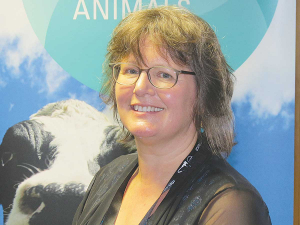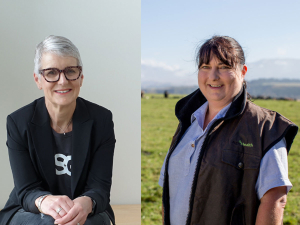New research has shown that dry stock farmers are just as likely to be infected with leptospirosis as dairy farmers.
Professor of Veterinary Public Health at Massey University Jackie Benschop, one of NZ’s leading experts in this field, says they have been working with a statistician at Warwick University in England to develop a model to identify the types of farmers who are notified with leptospirosis.
She told Rural News it remains a serious disease for dairy farmers, but it is not only dairy farmers that get lepto. The lack of information about dry stock farmers having the disease arises, in part, because of the way the data is collected which often doesn’t differentiate between farming types.
“By using patterns in routinely collected data, for example the season and the strain of lepto, we have been able to identify those occupations for which there was vagueness,” Benschop explains.
“Either the occupation was missing or it was only recorded as farmer and didn’t have the farming type.”
She says the crux of this research paper is that they have been able to use mathematical modelling to show that dry stock farmers are just as likely to be notified with lepto as dairy farmers. Benschop says the research shows that while dry stock farmers don’t see their stock every day like dairy farmers, they are still catching lepto.
“It is important to remember that nearly all dairy farmers have a lepto vaccination programme for their animals, whereas the uptake of these programmes amongst dry stock farmer is much less common.”
She says often when the data is being collected, dairy farmers will say they are dairy farmers, but dry stock farmers often don’t say what animals they farm. Benschop says you have to add into the mix shearers and meat workers who have no say in the vaccination status of the stock they handle.
In addition to this work, the Massey team are looking at other strains of leptospirosis in NZ such as Tarassovi and Ballum, which are not currently in vaccinations for cattle, sheep and deer.
“This work provides important evidence for reassessing the current minimal use of leptospirosis vaccinations in dry stock,” she explains.
“Vaccination programmes applied to dry stock should help reduce the high proportion of meatworkers and dry stock farmers being infected with the serovars in the vaccines. The effectiveness of such a vaccination programme has been demonstrated to reduce the incidence of ‘dairy farm fever’ in dairy workers in the past 40 years.”
Benschop says she and her researchers are fortunate to have strong relationships with industry and that includes those in health who collect the data. She says while it would be great to improve some aspects of data collection, to differentiate between farmer types, it is important to acknowledge the busyness of the NZ public health workers and it is great to be able to use the data collected to date.
From January 1, 2017 to December 31, 2019, there was an average of 140 cases of leptospirosis every year in NZ. This was an 89% increase – compared to five years prior between 2012 and 2016 where there were only 74 cases per year.
Benschop says the new research has found that the patient’s occupation was only recorded fully in two thirds of cases in surveillance data taken between 1999 and 2016, when there was a total of 1557 cases.
Looking ahead, she says their research will have to widen. Benschop points to advent of sheep milking, dairy goats and trials with deer milk. She says they are keen to connect with all farming endeavours to assess and advise on leptospirosis risk for example in the sheep and goat milk industries.











